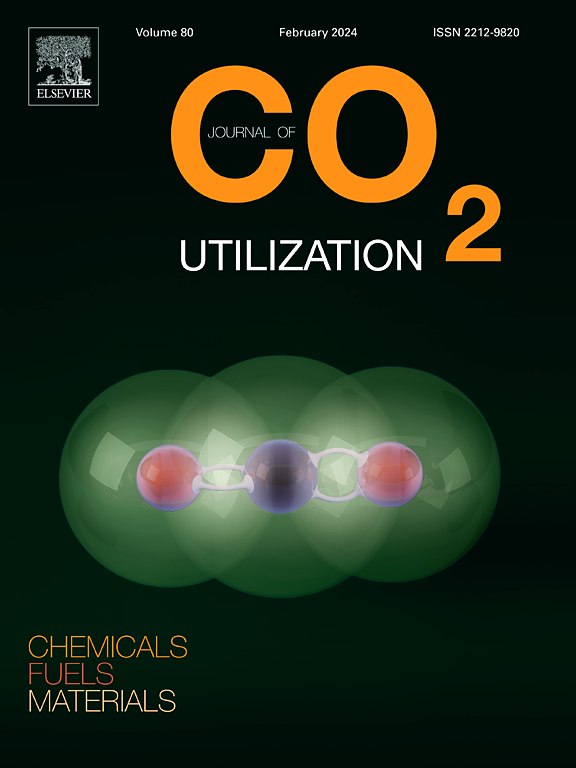微生物电合成β-法尼烯生产技术的经济可行性评价:过程建模和技术经济评价
IF 7.2
2区 工程技术
Q1 CHEMISTRY, MULTIDISCIPLINARY
引用次数: 0
摘要
微生物电合成(MES)是一种很有前途的技术,它利用电活性微生物与电极(即阴极)结合,将二氧化碳和可再生电力转化为高价值的碳氢化合物。本研究提出了一种利用MES反应器结合一系列分离和纯化装置操作,从CO2原料生产生物喷气燃料前体β-法尼烯(C15H24)的新工艺。利用一株代谢工程球形红杆菌作为阴极生物催化剂促进β-法尼烯的生成。基于MES反应的实验室规模实验数据,开发并模拟了β-法尼烯生产的商业规模工艺模型,以实现5000吨的年生产能力。该工艺的技术经济评估(TEA)显示,β-法尼烯的平均生产成本(LCOP)为2.94美元/公斤,与现有的糖基技术(如Amyris工艺的LCOP为4.9美元/公斤)具有竞争力。这些研究结果证明,从价格竞争力和未来市场需求来看,基于mess的β-法尼烯生产技术是一种有吸引力的生产生物喷气燃料的方法。本文章由计算机程序翻译,如有差异,请以英文原文为准。
Evaluation of economic feasibility for the microbial electrosynthesis-based β-farnesene production technology: Process modeling and techno-economic assessment
Microbial electrosynthesis (MES) is a promising technology for converting CO2 and renewable electricity into high-value hydrocarbons by utilizing electro-active microorganisms in combination with an electrode (i.e., the cathode). This study proposes a novel process for producing β-farnesene (C15H24), a bio jet-fuel precursor, from a CO2 feedstock using the MES reactor coupled with a series of separation and purification unit operations. A metabolically-engineered Rhodobacter sphaeroides strain was employed as the cathodic biocatalyst to promote β-farnesene production. Based on the lab-scale experimental data from the MES reaction, a commercial-scale process model for β-farnesene production was developed and simulated to achieve an annual production capacity of 5000 metric tons. The techno-economic assessment (TEA) of the process revealed a levelized cost of production (LCOP) of $2.94/kg for β-farnesene, which is competitive with existing sugar-based technology, such as Amyris’s process, which has an LCOP of $4.9/kg. These findings prove that MES-based β-farnesene production technology is an attractive approach for producing bio jet-fuel in terms of price competitiveness and future market demand.
求助全文
通过发布文献求助,成功后即可免费获取论文全文。
去求助
来源期刊

Journal of CO2 Utilization
CHEMISTRY, MULTIDISCIPLINARY-ENGINEERING, CHEMICAL
CiteScore
13.90
自引率
10.40%
发文量
406
审稿时长
2.8 months
期刊介绍:
The Journal of CO2 Utilization offers a single, multi-disciplinary, scholarly platform for the exchange of novel research in the field of CO2 re-use for scientists and engineers in chemicals, fuels and materials.
The emphasis is on the dissemination of leading-edge research from basic science to the development of new processes, technologies and applications.
The Journal of CO2 Utilization publishes original peer-reviewed research papers, reviews, and short communications, including experimental and theoretical work, and analytical models and simulations.
 求助内容:
求助内容: 应助结果提醒方式:
应助结果提醒方式:


